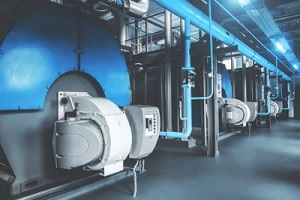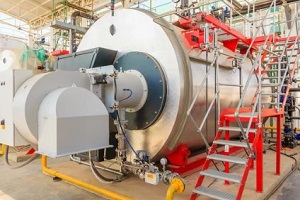 As the winter season comes to an end, it’s time to start thinking about preparing your boiler for the warmer weather ahead. Proper maintenance and preparation can help ensure that your boiler is ready to perform efficiently and reliably when you need it down the road.
As the winter season comes to an end, it’s time to start thinking about preparing your boiler for the warmer weather ahead. Proper maintenance and preparation can help ensure that your boiler is ready to perform efficiently and reliably when you need it down the road.
Taking the time to properly prepare it for the offseason can save you time, money, and headaches when the next winter season begins.
How to Prepare Your Boilers for a Summer Shutdown
Preparing your boilers for summer is best done with the help of a professional. It takes some experience to understand how to shut down a boiler properly, and if you want your system to last as long as possible, it’s worth investing in doing this process. Keep in mind that this process is for boilers that do not work year round and is best completed with assistance from your water treatment company.
Perform a Slow Drain Test of Your Level Safety Devices
Prior to shut down, you should perform a slow drain test of your boiler level safety devices. This involves slowly draining water from the boiler to verify that the low water level safety devices are working correctly.
Open the drain valve located at the bottom of the boiler and monitor the water level decrease in the sight glass. If the low water cutoff device shuts down the burner before the water level drops below the minimum safe level, it is working properly.
Performing a slow drain test is important for summer shutdown because it ensures that the low water level safety devices are functioning correctly. If the low water level safety devices fail, the boiler could overheat and damage the internal components or even lead to a boiler explosion.
Also, performing a slow drain test can help identify any issues with the low water level safety devices, such as faulty sensors or valves, which can be repaired before the next heating season.
Turn Off Power & Allow Boiler To Cool
When you are ready to shutdown your boiler your next step is to turn off the power supply. This will ensure that it is not active during the shutdown process. This can typically be done by switching off the circuit breaker or disconnecting the power source.
Once it is powered down, you will need to allow the boiler to cool before proceeding. This can take several hours or longer depending on the size of the boiler and its operating temperature. Remember to allow the boiler to slowly cool on its own as a sharp change in temperature can create thermal stress.
Isolate Boiler with Manual Shutoff Valves
Close the manual shutoff valves located near the boiler to isolate it from the rest of the heating system. This will prevent any water or steam from flowing through the system and allow the boiler to be drained and maintained while the system is offline.
Contact The Water Treatment Pros
To learn more about Tower Water's services reach out today!
Properly shutting off any access points for water to enter the system is crucial for preventing untreated water from entering your boiler during the off season and prevents corrosion.
Drain the Boiler
Once your boiler has cooled down it is ready to be drained. Locate your drain valve at the bottom of the boiler and connect your hose. The opposite end of the hose should be able to reach a suitable drainage area.
Open the drain valve and your bleed to help water flow out of the boiler. Once the boiler is emptied, remember to close your bleed and drain valves. Consult your water treatment company on how to properly drain your system as there will be a build up of sediment and debris from use.
Lay Up
 Boiler lay up, also known as boiler preservation, is important for several reasons. It helps to protect the boiler from corrosion during periods of non-use. It can also help in preventing the buildup of sediment and scale inside the boiler, which can reduce its efficiency and lifespan.
Boiler lay up, also known as boiler preservation, is important for several reasons. It helps to protect the boiler from corrosion during periods of non-use. It can also help in preventing the buildup of sediment and scale inside the boiler, which can reduce its efficiency and lifespan.
Proper lay up can help ensure that the boiler is ready for use again when needed, without any damage or issues. It’s important to note that the specific steps for boiler lay up may vary depending on the type of boiler and the manufacturer’s recommendations. Your water treatment company can help ensure that the boiler is laid up with the proper corrosion inhibitor and help with application.
Work With the Experts at Tower Water
Preparing your boiler for the offseason is a crucial step in maintaining its efficiency, lifespan, and overall performance. Consulting with your water treatment company can ensure that you take all the necessary steps to properly drain and lay up your boiler, as well as provide you with guidance on any other maintenance tasks that may be required.
Working with a trusted and experienced water treatment company can help you save time, money, and prevent any costly damage to your boiler in the long run. Don’t hesitate to reach out to Tower Water at (212) 518-6475 today for help with your boiler shutdown.
